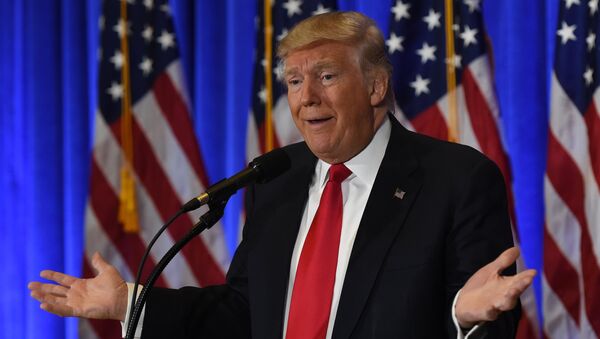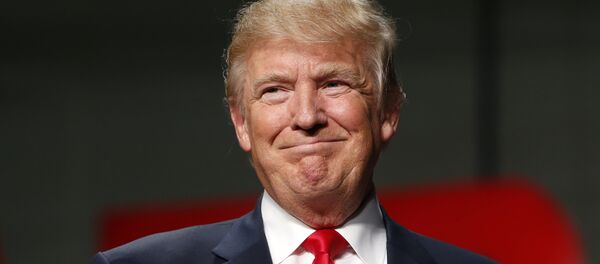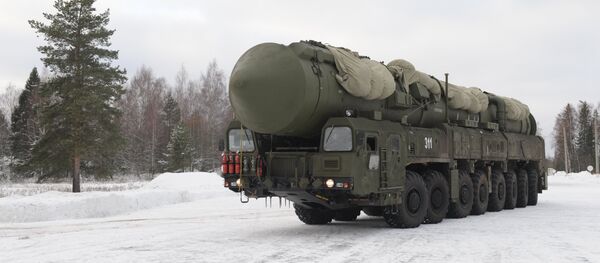Alexei Arbatov, the Head of the Center for International Security at the Institute of World Economy and International Relations said that Trump's statement on the nuclear deal was likely a response to the president-elect's recent "irresponsible statements" as for nuclear weapons.
"It seems to be an improvisation, Trump is responding to criticism of the recent days risen from a number of his irresponsible statements about nuclear weapons … And he decided to say that he was not against disarmament… He has attributed this to the lifting of sanctions, which was obviously improvised, because the sanctions are related to the events in Ukraine, where the issue of nuclear weapons never belonged," Arbatov told Sputnik.
According to Arbatov, Russia has a chance to use the situation and to make own proposals, forming the agenda of the cooperation between the two states on nuclear arms control as well as on nonproliferation.
His words were echoed by Daryl G. Kimball, the executive director of the US-based Arms Control Association, who considered that it was to early to make a decision on the outcome of Trump's proposal, as is had not been clear yet.
"We support a renewed and comprehensive dialogue between the United States and Russia on a range of issues — including Russian compliance with the Minsk Agreement on Ukraine, compliance with the 1987 [Intermediate-Range Nuclear Forces] INF Treaty, mutual reductions in strategic and tactical nuclear arsenals, a new understanding about the scope of missile defense systems, avoiding dangerous military encounters over Europe, and other issues — but it is not yet clear what Mr. Trump is proposing," Kimball told Sputnik.
He added that the Arms Control Association would refrain from judgments on the issue, as no details of Trump's plan were clear at the moment.
Matthew Bunn, Professor of Practice at Harvard University's John F. Kennedy School of Government, also welcomed potential cooperation between Moscow and Washington against the backdrop of Trump's initiative.
"Further US-Russian nuclear arms reductions would, in my view, serve the security interests of both sides and the world. There are serious issues that would have to be addressed, including Russia’s concerns over US missile defenses, U.S. charges that Russia has violated the INF Treaty (with Russian countercharges), and more," Bunn told Sputnik.
The expert said that the new pact would show that the two nations were ready to reduce nuclear risks at our planet and called for renewal of cooperation in a number of spheres.
"The two countries should also renew cooperation among their nuclear experts on issues such as nuclear energy, nuclear security, nuclear cleanup, and more," he added.
Russia and the United States as the countries with the largest world nuclear arsenals have a rich history of agreements regulating their nuclear capabilities. Washington and Moscow clinched a number of accords regulating the amount of nuclear weapons the countries can possess, such as START or Strategic Arms Limitation Talks Agreement (SALT) and the measures of arms control, such as on-site inspections.
Since 2014, relations between Russia and the western countries, including the United States, deteriorated amid the crisis in Ukraine. Washington, Brussels and their allies introduced several rounds of sanctions against Russia over its alleged involvement in the Ukrainian conflict, which Moscow has repeatedly denied.
Never miss a story again — sign up to our Telegram channel and we'll keep you up to speed!





